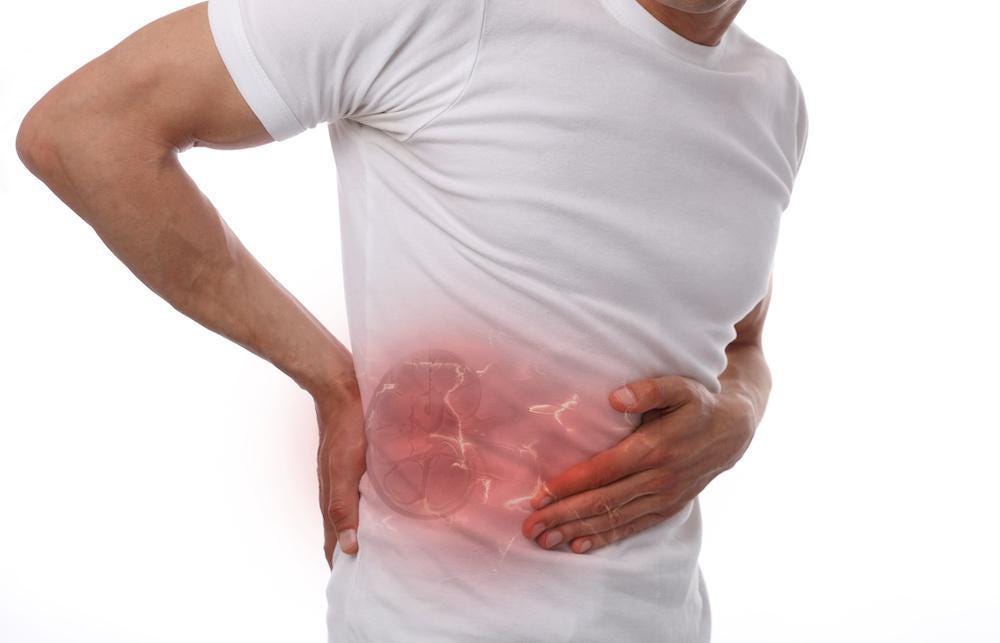
Kidney stones are tiny, dense mineral crystals that grow inside the kidneys. When they move through the urinary tract, they can cause agonizing pain and discomfort. The risk of kidney stones can be considerably decreased by being aware of the typical causes and taking preventative actions. In this blog post, we’ll look at the main reasons kidney stones occur and offer helpful advice for preventing them.
What is a Kidney stone:
Renal calculi, or kidney stones, are solid salt and mineral deposits that develop in the kidneys. They can range in size from minute particles to massive stones with a diameter of several centimeters. Kidney stones normally form when specific elements, such as calcium, oxalate, and uric acid, become concentrated and crystallize in the urine. These crystals may develop and group together over time to produce solid stones.
Types of Kidney Stones:
Let us begin by discussing the many types of kidney stones, such as calcium stones, uric acid stones, struvite stones, and cystine stones. Describe each type’s makeup and characteristics in brief.
Dehydration and Lack of Fluid Intake:
Underline how dehydration contributes to kidney stone development. Describe how a lack of fluid intake might cause urine to become more concentrated, which raises the possibility of stone development. Advise on how much water to drink each day and the value of staying hydrated all day.
Dietary Factors:
Discuss how various dietary elements may contribute to kidney stone development. Emphasise oxalate-rich foods like spinach, rhubarb, and chocolate since they can cause calcium oxalate stones to form. Encourage people to consume these foods in moderation and provide them with alternate nutritional options.
Sodium Intake:
Discuss the possible links between various dietary components and the formation of kidney stones. Foods high in oxalate, such as spinach, rhubarb, and chocolate, should be prioritized because they can result in calcium oxalate stones. Provide them with alternative nutritious options and advise them to take these meals in moderation.
Calcium Intake:
Dispel the myth that consuming calcium causes kidney stones. Make it clear that getting enough calcium does not directly cause the production of stones but is necessary for maintaining general bone health. Discuss the advantages of getting calcium from food sources as opposed to supplementation.
Medications and Medical Conditions:
Describe how specific drugs or underlying health issues can make kidney stones more likely. Discuss the significance of routine physicals, keeping in touch with medical professionals, and managing prescription side effects as well as any diseases that would put someone at risk for stone formation.
Lifestyle Modifications:
Offer doable lifestyle adjustments to avoid kidney stones. These can include eating healthily, exercising frequently, and consuming less alcohol and caffeine. Describe how these modifications can improve kidney health and lower the chance of stone development.
Importance of Regular Check-ups:
Insist on the value of routine physicals with a urologist or primary care doctor. Encourage readers to make regular consultations to evaluate their kidney health and talk about any worries or symptoms they might be feeling.
Summary:
It is important to comprehend the typical causes of kidney stones to prevent them. People can dramatically lower their risk of acquiring kidney stones by taking care of issues including dehydration, dietary choices, sodium consumption, and medications. Maintaining kidney health requires changing your way of life and drinking plenty of water.
It is always advisable to seek competent medical assistance if you have any worries regarding kidney stones or any urological issues. Our team of skilled urologists at Dr. Dhake Urology Clinic is committed to offering patients with urological difficulties complete care and direction. Make a consultation at the Dr. Dhake Urology Clinic to receive individualized attention and assistance in maintaining your urological health.
Keep in mind that the best defense against kidney stones is prevention. You may reduce your risk of experiencing the pain and discomfort linked to kidney stones and enjoy optimal kidney health by being proactive and obtaining professional advice.




